
How the postal survey is affecting same-sex couples in Australia

Three very different LGBTI couples open up to Jess Jones about how the marriage equality debate is affecting their lives, for better or for worse.
***
Eliot Hastie and Tom Miles have been together for two years. Both would love to see marriage equality become a reality for Australia, but Miles is unable to vote in the postal survey because of his citizenship.
The couple live together in Sydney and are currently applying for a visa for Miles, who is British, to stay in the country.
“I certainly wonder if it would be easier if we were married,” says Hastie.
Marriage equality is important to Hastie and Miles even if they aren’t planning a wedding themselves.
“I’m still quite young, so it’s not as though we’re ready to march down the aisle,” Hastie jokes.
“It’s bigger than us. Marriage equality will show young people growing up that it’s okay to have these feelings, to be gay. It’s more the statement that it makes, for us.
“It won’t change things overnight, but it says that [being gay] is okay. It’s about that wider acceptance.”
Hastie and Miles have both lived in the UK, and seen the increase in LGBTI acceptance that came after marriage equality.
“Every friend I talk to who’s not from Australia is amazed that we don’t have it yet,” says Hastie
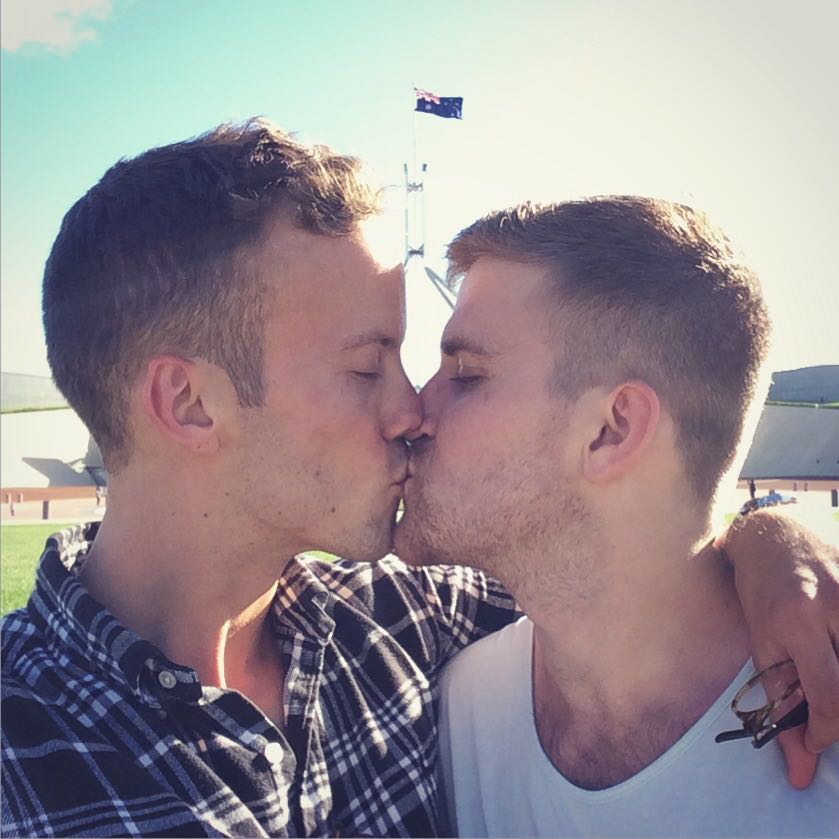
With the postal survey looming, Miles is frustrated as he has to watch the vote happen without participating in it.
“It’s a lot of frustration for him, compounded by the fact that he can’t do anything about it,” says Hastie.
“He can’t vote, and all his British friends here can’t vote, so there’s a lot of annoyance and frustration that they just have to watch this train wreck of a debate and they can’t participate. He wants to be involved and help, but the fact that he can’t add his voice to the actual survey, it’s not fair that he has to watch his own relationship being debated and doesn’t get a say in it.”
Hastie has found the anti-LGBTI rhetoric from the debate so far to be “really tiring”.
“Someone was talking about people wanting to get married to bridges, and that was week two of the debate,” he says. “Where do we even go from there?
“I don’t mind if someone’s voting no if they can give me a good reason why. There’s so many tired lies going around. If they don’t have a good reason they’re just hiding behind homophobia.”
Chloe Smith* is a bisexual woman in an opposite-sex relationship. She’s been with her current partner for eight years.
“I was ten or eleven when I started to realise I was attracted to people of the same sex,” says Smith.
“I remember being taught explicitly in high school health education classes that it’s normal during your teenage years with hormones raging to feel same-sex attracted, but don’t worry, it will just be a phase. That was actually quite a relief for me, to think it was normal and I’d grow out of it… and then I didn’t.”
Smith was in a number of long-term same-sex relationships before meeting her current partner. They are not married and aren’t planning to tie the knot at this stage, though as an opposite-sex couple they of course would be able to.
“I just think it’s so wrong that if we did want to get married we could, but there’s part of the population who can’t,” she says. “It’s just not right.
“My first girlfriend, who I was with for three years, got married to her wife a few years ago and it was such a beautiful ceremony. They both wore gorgeous white dresses. But there was this legal aspect of it missing, which is just so hurtful and makes people feel like they’re second-class citizens.
“How dare anyone say that my best friend and her wife don’t have the same right to get married as me and my partner? It’s just so wrong.”
Smith’s partner is straight, but he supports LGBTI rights and they have attended marriage equality rallies together. Smith sees straight allies as important to achieving equality.
“There were so many straight people [at the last rally] with signs like ‘I’m not queer but I’m here’,” she says.
“I think that reflects that it’s an issue of equality. People feel that if there’s one part of our society that’s not treated equally then that’s not okay, even if it doesn’t personally affect them.
“My partner, he’s straight and it won’t affect him if other people are allowed to marry, but he’s passionate enough to march and fight for other people’s rights.”
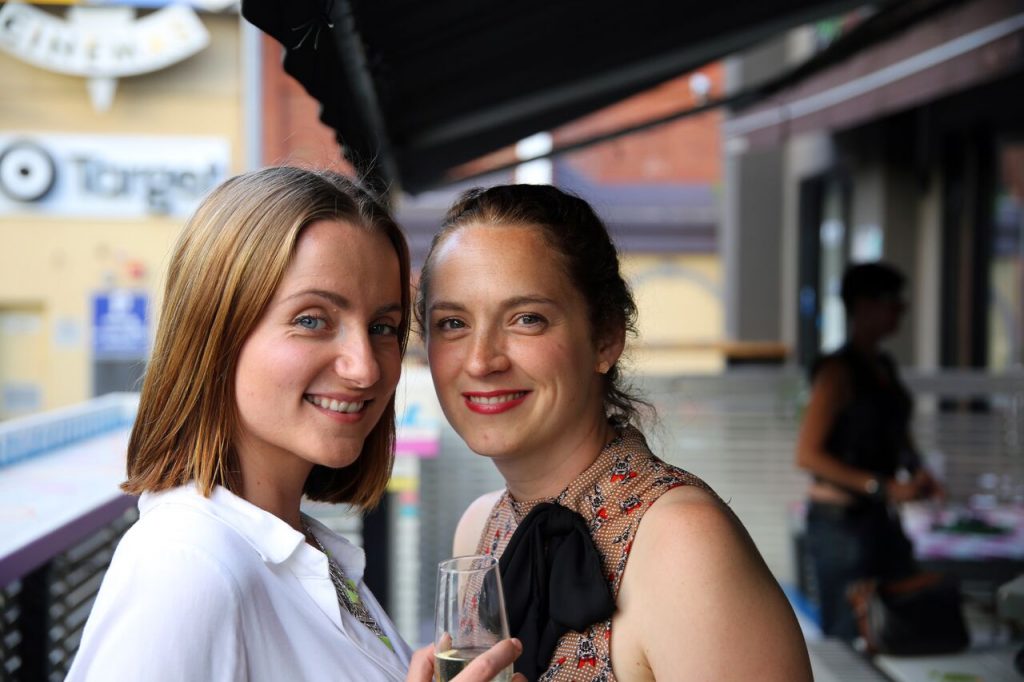
Melbourne couple Gwen and Megan Luscombe have been together for four years.
“Although we run a business together so it feels like 20,” they joke
The couple have been engaged for two years, so marriage equality is of personal importance to them.
“It’s something that we’re effectively just waiting around to do,” says Gwen.
“We’ve watched other friends of ours get engaged and plan their weddings, and being event planners we’ve planned weddings for friends, which is a bit frustrating because we can’t plan our own.”
Friends have suggested they get married overseas, perhaps in the US, where Gwen is originally from.
“We could do it, but effectively it’s a bit null and void doing it overseas and then coming back to a country where it’s not recognised,” Gwen says.
“If the option existed to get married there and have it recognised here we’d do it in a second.
“When we do it, we want to do it for real. I give credit to everyone who’s out there doing it anyway, but for us we want to have a ceremony that’s legal. It’s important for us to have our marriage recognised in the country we want to live in and raise our family in.”
Gwen says her family and friends in the US are “completely baffled” that Australia doesn’t yet have marriage equality. She believes LGBTI acceptance has come a long way in the US since marriage equality has become normalised.
“The marriage debate in Australia has been fucking depressing,” Megan says.
“There’s been moments of frustration. We’ve been watching the news and in tears about it. Our relationship is the strongest foundation I’ve ever had in my life, and watching this whole thing unfold is probably the most hurtful experience I’ve had in my life.”
Gwen adds, “Having people on the news and social media telling us we’re an abomination and we should be dead… I can’t imagine being in the shoes of young LGBTI people or those without a good support network.”
The pair have accepted that for now marriage is not on the cards, and have moved onto things they can do, such as planning a family.
“You can only talk about something and plan it for so long before it starts to hurt that you can’t do it,” Megan explains.
They do intend to get married soon after it’s possible.
“A lot of our friends are going to want us to get married pretty much the day after it becomes legal,” says Megan.
“The fact that we’re event managers and we plan weddings professionally… we have a lot to live up to!”
*Not her real name




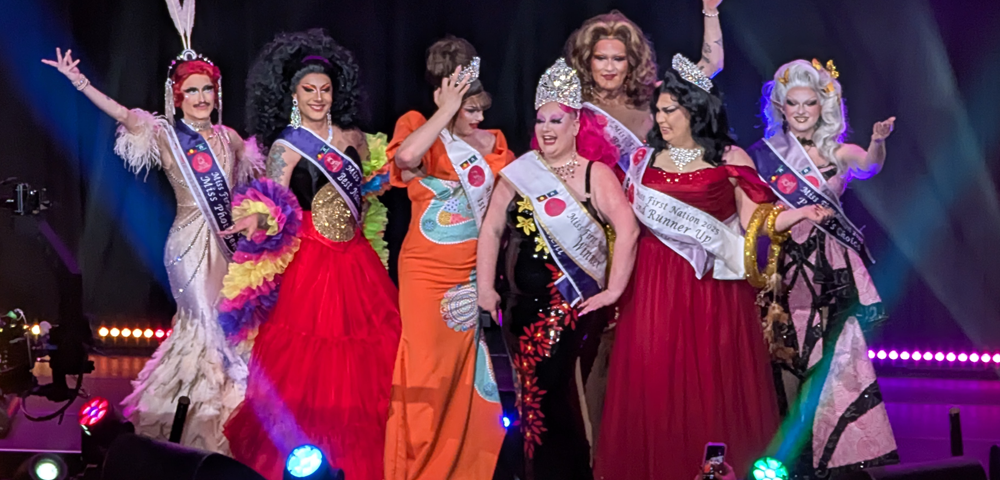
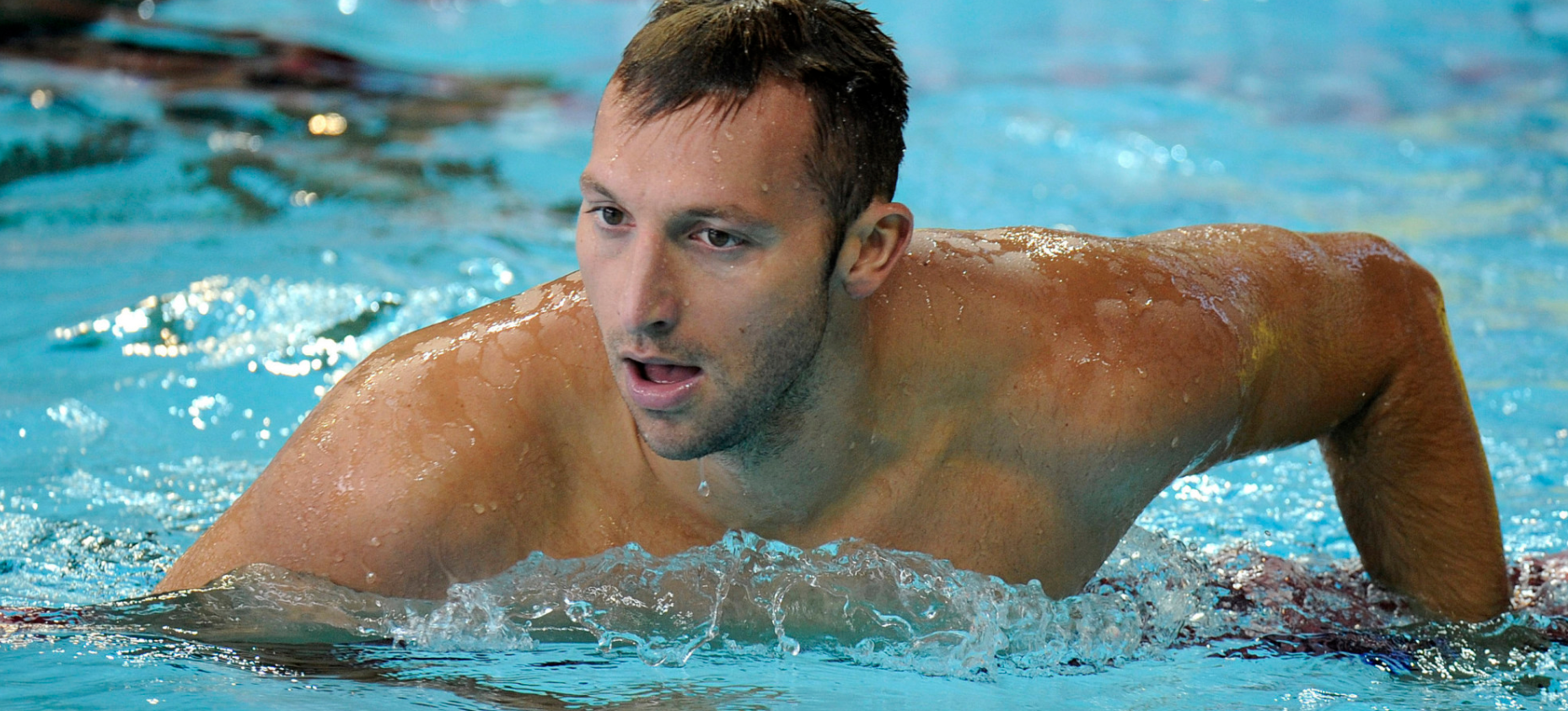
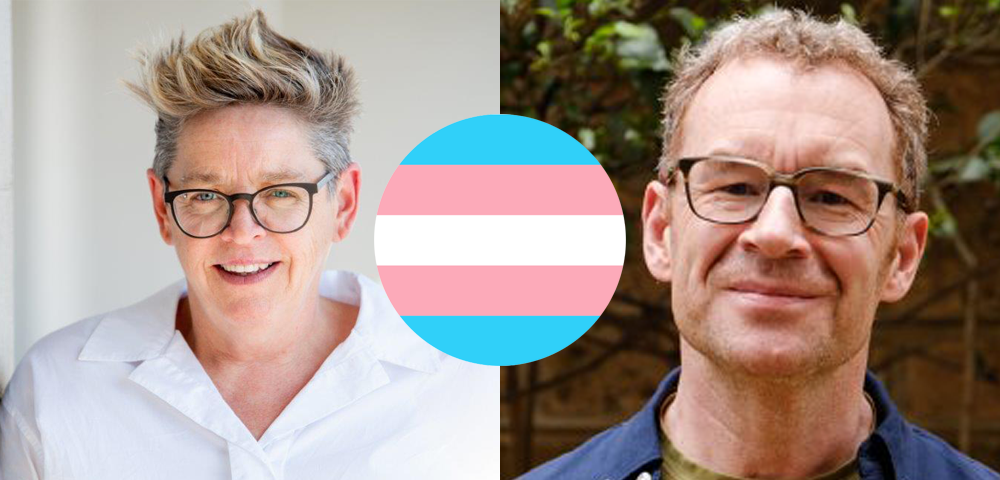
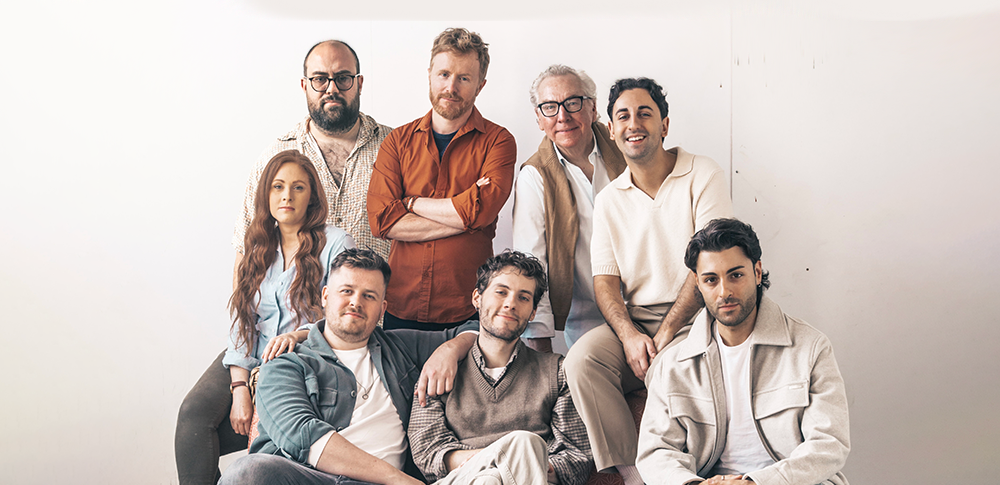
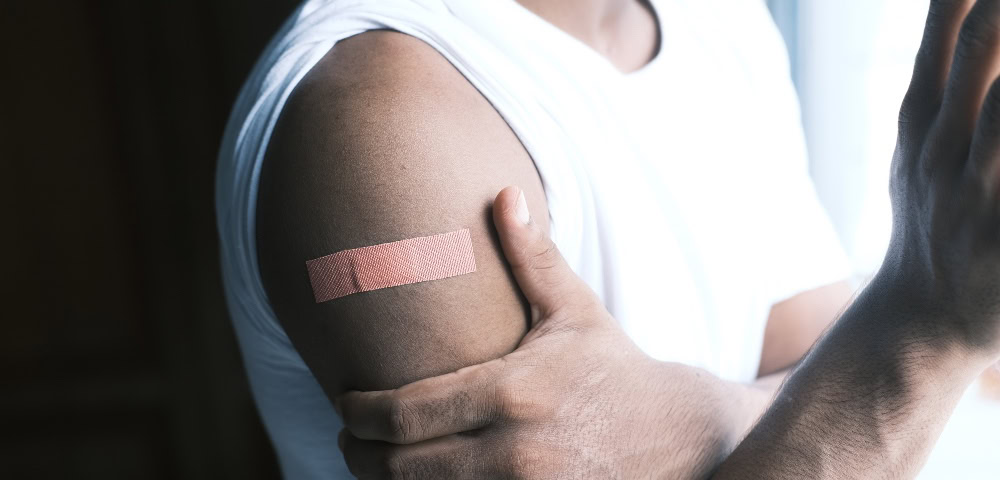
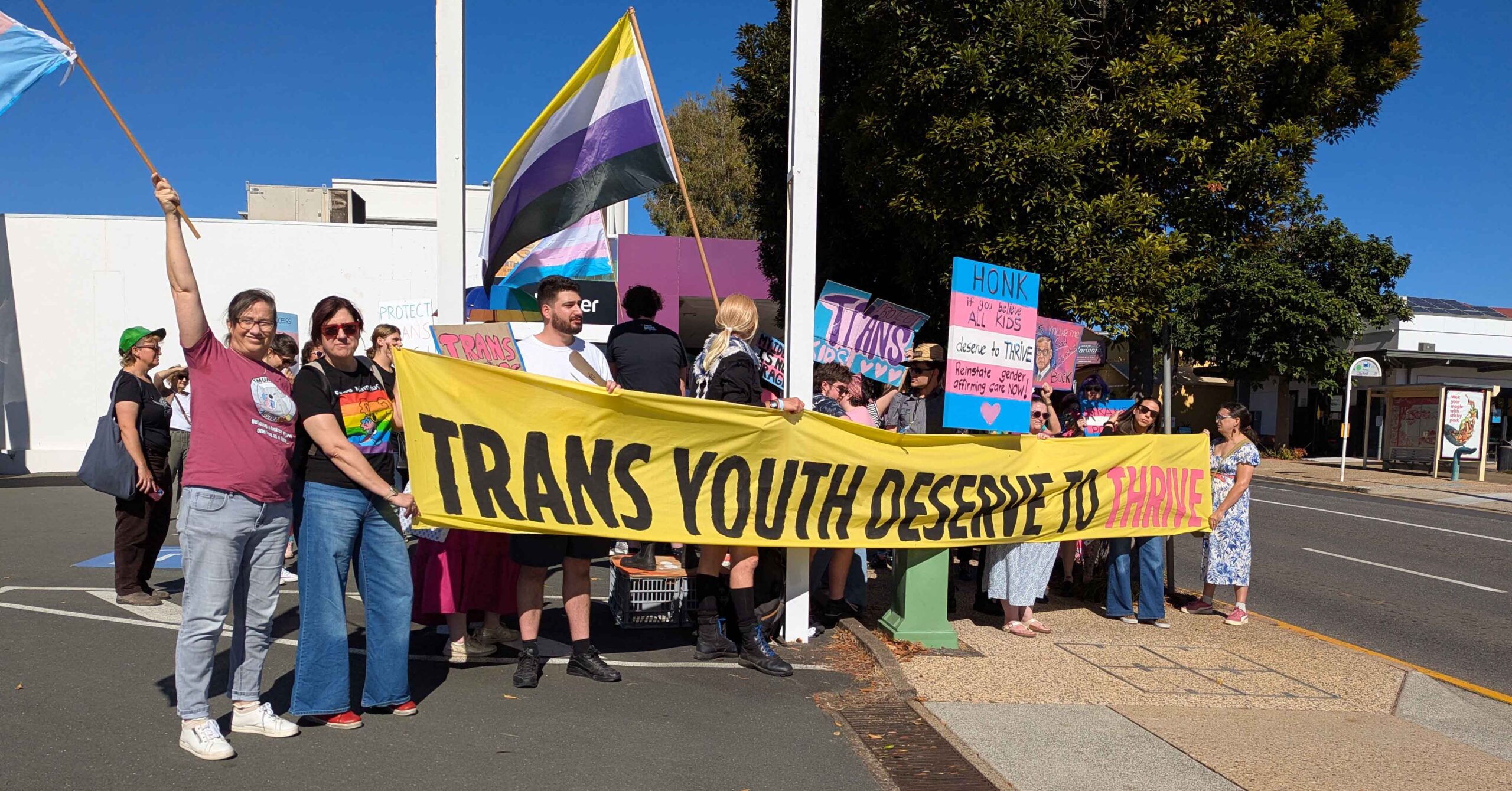
We’ve been together for 39 years, and suffered quite a bit of homophobia over the years, but with the introduction of this costly, and ridiculous non-binding opinion poll, we have not seen so many vitriolic, rude, lying and devious homophobes in all our lives.
Marriage Equality is permitted in 24 countries in the western world, 23 of which had a parliamentary vote. Ireland of course had a free binding vote, and were successful.
Our scared little minded government still have to vote on this plebiscite outcome, and we fear that they will not honour the vote if it is in the affirmative.
We are trying to stay positive, but some of the mainstream media and social media, reminds us of how much history can repeat itself!
If it doesn’t happen this time, we will get married in a gay-friendlier country!
My lovely partner of 24+ years has had a shocking time of ill-health for the last eight years. And I recently discovered that I have an aggressive cancer with some ‘secondary’ cancers.
We’d been unofficially engaged for about 23 years, and officially since last year.
He is my soul-mate.
I feel naturally spiritual, so this ‘mature debate’ (as Mr Turncoat calls it) certainly doesn’t effect the very real love I have for my fiancé.
But what *feels* soul destroying is the negativity, lies, irrelivancies and myths that the naysayers are offering, and how they seem to be popping up out of nowhere; perversely sticking to their self-centred uninformed venomous ways; not wanting to listen, learn and grow.
There’s a 1993 accademic essay which proves of a history of same sex marriage, from Yale Law School, that’s only been hidden and forgotten through eons of heteronormativity. I discovered it in 2013, via ABC TV’s ‘Fact Check’ department, when Abbott stated that marriage has *only* ever been between a man and a woman. That department found Abbott to be incorrect, in part, by that essay, which informs and enlightens of the truths of respected, supported and celebrated marriages between same sex couples in Ancient Egypt, Ancient Greece, the Roman Empire, Mesopotamia, clerics from early Church (whose marriage vows were the actual building blocks of what we have today), and Indigenous cultures before colonisation and missionaries invaded their worlds.
I implore *all* who want marriage equality to become a reality in Australia to read this essay, as I believe it could be one of our best tools against the naysayers. Once they have been told the truth of marriage’s previous *inclusive* history, if any of the naysayers have a grain of decency and fairness in their minds, they will understand that they have no reason to vote ‘no’; while anyone who remains clinging to ‘no’ will not be able to hide their hatred and bigotry behind any other excuse to say ‘no’.
It will also shine a light on how specifically discriminatory Howard’s law was when he excercised fascism to make marriage only between a man and a woman.
Here’s the link to the essay. Please download it and read it so you can have facts at the ready to convey to the naysayers; even alert it to prominent allied politicians who can then use their position to strengthen the ‘yes’ campaign, and show that there is no reason for the Rainbow Community’s love to be classed as second rate and not important …
http://digitalcommons.law.yale.edu/fss_papers/1504
My husband and I have been together for coming on 13 years (this November) and we got sick of waiting so we got married in Hawaii on our 12 year anniversary (last year). Whilst our wedding was amazing and beautiful and all of that, it sucks that our relationship status is recognised in so many countries, except our own.
We were both born in Australia, you know that “forward thinking” and “progressive nation” that so many people (including our families) migrated to because it was seen as a land of freedom, democracy, equality and opportunity… oh wait, it seems only some of those attributes are true, or only when it serves a purpose for a leading politician to receive or maintain support from his party!!
Maybe one day we will get equal treatment in our own country, but until then, Canada – here we come!!
Good luck and best wishes to everyone who’s feeling stressed by this. It’s awful that the government has concluded that the price of marriage equality is months of bigots getting into the media to call non-traditional marriages inferior and to make a lot of disgusting claims about gay couples.
I’m stressed and anxious and I’m happily straight married with no personal gain if marriage equality gets up. I’m stressed and anxious because I thought I lived in a country which had imperfect but ultimately reasonable processes for determining civil rights of Australians which saw our Parliament decide in accordance with the community view on one hand and the facts about what the actual pros and cons of a policy would be. I thought we would move towards marriage equality like NZ or the UK, I thought our conservatives were delaying it because they’re conservative but that they would ultimately accept it because we’re a modern judeo-christian society and around the world, societies like ours have marriage equality. Instead the No campaign is promising that if marriage equality happens we won’t have Christmas anymore (actual claim by No campaign celebrity Margaret Court).
I’m stressed and anxious on behalf of loving gay couples. But I’m really stressed and anxious about what minority group is going to have a “non binding plebiscite” thrust upon them next.